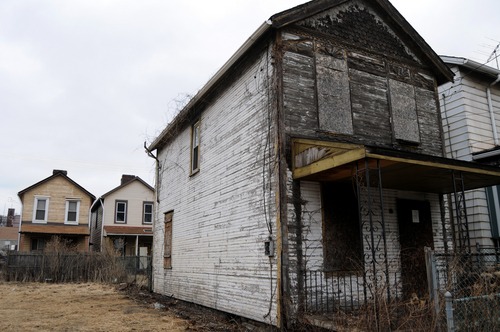
Pennsylvania Legislative Democrats held a virtual public hearing Friday, March 26, to discuss abandoned and blighted property conservatorship, the effect of blight on neighborhoods, and what tools are available to eradicate blight while preserving the integrity of communities.
The hearing was requested by Sens. Wayne D. Fontana (D-Allegheny), Jim Brewster (D-Allegheny/Westmoreland), Lindsey Williams (D-Allegheny), and Rep. Sara Innamorato (D-Allegheny) to look at Act 135 of 2008, the Abandoned and Blighted Property Conservatorship Act.
“Making sure that blight does not continue to bring down our thriving communities is of the utmost importance,” Sen. Fontana said. “The premise of Act 135 and all blight remediation legislation are overall positive and essential to eliminating blight. The purpose of this hearing is to examine the act to make sure the law is being used for its intended purpose and make any necessary changes to achieve this goal.”
Act 135 was passed to allow responsible owners to take over empty buildings that have become neighborhood eyesores. Owners would be required to act under court supervision. However, the legislators said, housing developers have used the Act to cheaply acquire properties over the past few years.
“I have been an advocate of this kind of blight removal legislation over the years because run-down and abandoned buildings hamper local communities as they implement development initiatives and attract new opportunities to the area,” said Sen. Brewster. “The legislation discussed today is necessary to support community revitalization efforts and to build stability throughout the region.”
Other legislators said they were concerned that by rehabilitating the blighted properties, the act opened the door to gentrification.
Ernie Hogan, Executive Director of the Pittsburgh Community Reinvestment Group (PCRG), said, “Since the passing and amendment of the legislation, there have been abuses of the law that have emerged, resulting in lost equity, lost access, and damaging speculation. Our members have told us loud and clear that many neighborhoods have seen unscrupulous investors surface with the desire to speculate and flip real estate, in some cases competing with local neighborhoods organizations.”
Brewster said he expects changes to be made to Act 135 after receiving testimony at the hearing.